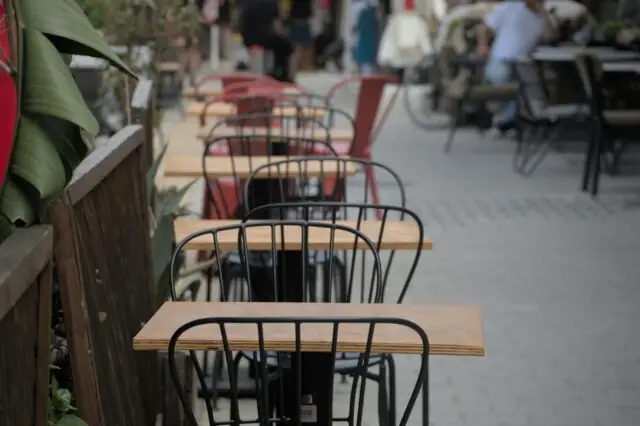Legal services
How to obtain pavement licences so you can offer that ‘alfresco’ experience
Using the front or other external area of a licensed premise to offer that ‘alfresco’ experience can be highly profitable. But there are certain things you need to consider before you can start using the space.
The first one, which might sound obvious, is to understand who actually owns the land.
If the land in front of your premises is council adopted (a public highway) which is without doubt the most common ownership, you will need to apply for a pavement licence (sometimes called a tables and chairs licence) before you can put any furniture on it.
Pavement licences are granted by your local council, but unlike many other licences used in the trade, such as a premises licence or personal licence, they only last for a set period of time; which is a maximum of 12 months.
So you will need to reapply for your pavement licence for each year that you need it. If you don’t and it lapses, you will have to stop using your outside area until you get your new licence, which could have a real impact on your business.
All councils tend to work differently with regards pavement licensing. And some might be more flexible than others. However, if you do use an outside area without a pavement licence, councils are within their rights to confiscate and store your tables and chairs. And you would usually have to pay a fee to get them back.
In the worst case scenario, you could have your premises licence revoked if you continued to use an outside area without the relevant permissions.
If the land is part of your own property, you do not need a pavement licence.
But be careful, as even if this is the case, it doesn’t mean that you can simply place tables and chairs outside without checking for other issues, detailed below.


Type of furniture
Any furniture that you want to use must be removable for you to gain a pavement licence. And to make life easier from an operational point of view, it should be easily removable. Plus you should have a space to store your furniture for safe keeping.

Planning permission
Local councils across England and Wales tend to have different systems and requirements for different licences. Many operate the so-called Fast Track pavement licence scheme, first introduced during the COVID pandemic – if you are applying under this scheme then you don’t need to apply for planning permission. However, if you are applying under other legislation, for example the Highways Act 1980, some councils require you to obtain planning permission for a change of use. So when you make your application, make sure you ask about planning, too.
Pavement licence
Your premises licence
Before you make your pavement licence application, you should check to see if your premises licence contains any conditions stopping you serving alcohol outside – but don’t despair if it does.
During the pandemic the government introduced a so-called ‘Off sales easement’, which allows premises with on-sales only licences to provide off sales to outdoor areas, subject to certain criteria.
The easement also suspends conditions which might prevent or restrict off sales up to a cut off time to 11pm. This measure is continuing until at least the 31st March 2025, and you can find out more here.
Pavement licence
Representations
Just like with applications for a new premises licence or a licence variation, your pavement licence is advertised publicly by a notice that you need to display on your licensed premises (commonly placed in a window) and as such, is open to attract representations (objections). These can be from members of the public, other businesses and authorities such as environmental health or the police.
If this is the case, your pavement licence application could end up being heard in front of a licensing committee.
Or, it could simply be rejected and you will not be able to use the space as planned.
Like many aspects of licensing within the alcohol and leisure world, different local councils have different policies and procedures. Therefore, it is important to check with the local authority before proceeding.

One of the legislative changes the Government made to help the leisure and hospitality sector in the wake of COVID 19 was the new fast-track pavement licence application process. This reduces the consultation and determination periods to 7 days each, with a fee of £100.
Another important part of this legislative change is that fast-track pavement licence applications do not require any planning permission to be granted; even where local councils had previously stated that it would.
Although this fast-track scheme was initially for 12 months, as outlined in the Business and Planning Act 2020, it has been extended until 30 September 2024.
At the same time, the Levelling Up & Regeneration Act contains provisions to make the fast-track scheme permanent, with minor changes – the fee will be £500 for a new licence and £350 for a renewal and the consultation and determination periods 14 days each. The Act has not yet been brought into force but should hopefully become effective in the coming months.
Our specialist licensing solicitors have secured 1000s of pavement licences in almost every part of England and Wales. So if you are interested in applying for a licence to take advantage of any extra space that you might have adjacent to your licensed premises, why not give them a shout. They’ll be more than happy to help you.
Can’t find what you’re looking for?